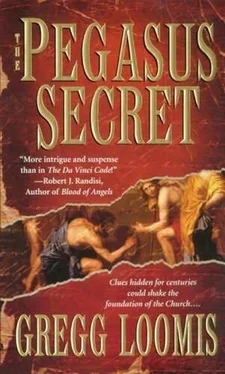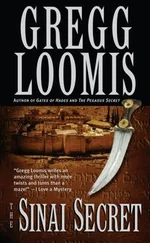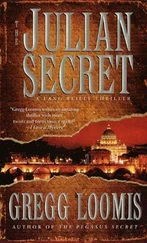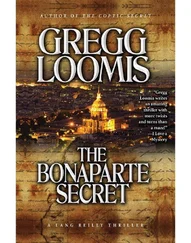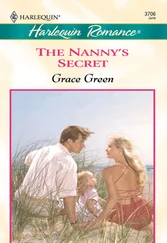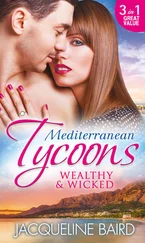Computers. Fact was, Reilly would have eventually been identified by old-fashioned, thorough police work. Even without all the modern glitz, the fingerprints on that umbrella had been confirmed by Washington. They were Reilly's. And the brelly, well, now, that had been lucky. Just bought that day, it turned out, at Fortnum and Mason, paid for with a credit card belonging to a Heinrich Schneller, nobody the chappies at Visa had ever heard of. That was a bit of information Fitzwilliam was going to keep close to his chest, as the Yanks said, quietly put out a trace to be notified if that card were used again. And make sure every copper at every major international airport had a picture of Herr Schneller, with and without his bloody moustache.
Fitzwilliam sat down with a sigh, his eyes on the face staring up at him from his desk. Amazing resolution these days-photo could have been a shot from someone's holiday last week. Pushing the picture aside, the inspector reread the material that had accompanied it.
This Reilly chap had spent some time in London before, had a list of acquaintances. And an odd lot they were. A Mossad operative, probably retired by now; a German national he had been boffing, a rather striking woman from the picture he guessed came from her service jacket; and any number of publicans where he had his pint as regular as any working-class sod. Fitzwilliam's forehead creased in a frown. It was going to be a spot of bother, pulling men off investigations to go 'round and chat up all these people.
He reached for the phone. Best get to it. The cousins were waiting and they were an impatient lot. Worse, they believed their own cinema, that Scotland Yard had the ability to do anything asked of it. He snorted as he punched in numbers. The Yard should have the resources of the sodding Yank FBI.
THE TEMPLARS:
THE END OF AN ORDER
An Account by Pietro of Sicily Translation from the medieval Latin by Nigel Wolffe, Ph.D.
3
Nothing I learned from the cellarer had prepared me for the manner of provisioning a ship. Each vessel was but ten rod 1in length and half that high at bow and stem. A single mast carried a single sail, 2all other space being crowded with as many as one hundred people. Each person required two barrels of water as well as a mat of straw, a quilt, meat, cooking utensils, and spices as would make the meat fresh to the taste such as ginger, cloves and mace. The cost of this provisioning paid to the merchants of Trapani was, according to Guillaume de Poitiers, forty ducats for a knight.
He also said the unwary paid as much for the worst as for the best, this in reference to the mat and quilt: A man paid five ducats for those items but they Were sold back to the merchants by arrivals for half that, so that many were worn and rife with vermin.
The upper stage of the vessel was desirable over the lower, the latter being smoldering hot and sultry. But it was in these lower quarters the low-born such as Phillipe and I were quartered. I was to suffer greatly, for this lower deck was also the repository for horses, oxen, swine 3and other animals, the stench of whose excrement never left this area.
The days at sea were such as to try my faith. The ship rolled and pitched in such a devilish manner as to nearly toss me into the waters when I ventured from my pallet beneath the deck. Most of my time I spent suffering from a malaise I learned to be common to many who venture upon the waters for the first time. The vapors of the sea cause the stomach to tighten, refusing to retain whatever victuals are put in it while trying to reject that it has already sent forth.
Such was my misery that the captain of our vessel, a heartless, vile man who delighted in the misery of others, took great glee in calling down to those of us ill in the lower deck, "Shall I make you meat anon?"
Then he would laugh as he told all that would hear, "They have no use for the meat they have purchased. Better we should consume it than it go bad."
It is God's mercy that after some period of time, the body develops an imperviousness to these atmospheres of the sea that cause such illness. Thanks be to heaven and its merciful Lord, such proved to be the case and I was delivered from such suffering as I had never before experienced and know now that I never shall again. The agony that I face is of a different sort.
By God's will we reached Genoa where we replenished our supplies and set out for France.
With God's kindness in abating my illness, I took note of my surroundings. I had never had the opportunity to observe the workings of a ship. Most interesting were the maps used by the navigator on which lines were drawn, dividing the portions of the earth into squares, 4in which the ship was placed by careful nocturnal observation, thereby demonstrating our position on the sea in relation to points of land. These charts gave me pause as being not those sanctioned by God. 5
I was to learn this was not the only rule of God that found its exception among these Knights of the Temple.
We disembarked at Narbonne in that region of Burgundy known as the Languedoc. As we journeyed away from the sea, we traveled along a valley where the soil was as white as the Knights' surcoats. To our left the River Sals ran south to the ocean we had left.
As we progressed, I became increasingly aware of a huge castle 6crouched atop a mountain on the far side of the river. I was told this was Blanchefort, an edifice that had been in the hands of the Knights since it was given by a family of that name to Hughes de Payens, Grand Master of the Poor Knights of the Temple of Solomon in the year of his return from The Holy Land. 7
"The Blancheforts were truly devout servants of God," I remarked to Guillaume de Poitiers when he trotted his charger to the rear of the train to verify that' Philippe and I were keeping up. "The gift of such an estate to the Order would surely find favor in heaven."
He leaned from his saddle to check the bindings of the load carried by one of the horses. "The abbey at Alet as well as barracks at Peyrolles. Master de Payens was a rich man indeed."
"You mean the Order was enriched," I said.
He looked at me in silence before he replied, "No, little brother, those are not the words I spoke. Master de Payens was given those lands himself so that the Order might profit as he saw fit."
"But the vow of poverty…?"
He shook his head. "Think you instead of the vow of obedience which forbids asking your betters impertinent questions."
He left me to ponder how a member of a holy order could own such riches as the properties as the aforementioned.
Once again, the monastic vows I understood did not seem paramount to this Order, We rested and encamped for the night outside the village of Serres. At daylight, we forded the river and made a rearwards turn. I could not help but note that the morning sun was on my left just as it had been on my right the day before.
"Are we not but returning from whence we came by another path?" I asked one of the older esquires.
"Indeed we are progressing to the south," he said, "just as we marched to the north yesterday. Serres was the nearest place to cross the water and now we are proceeding to the castle at Blanchefort."
Shortly thereafter, we began an ascent· up a mountain. Where vegetation failed to cover it, the soil was as chalky in colour as it had been in this region since we left sight of the sea. It was claylike to the touch and I pondered what victuals might grow in dirt so different from the loamy black humus of Sicily.
At the top, we halted in front of towering walls of white stone while the knights with us exchanged words I did not understand with those on the ramparts. During this conversation I noticed the walls were not stones crudely piled like the boundary of the abbey I had departed but carefully fitted so that each rested upon the other. I was later given to understand that the knowledge of how to make this so came from the Saracens. 8
Читать дальше
